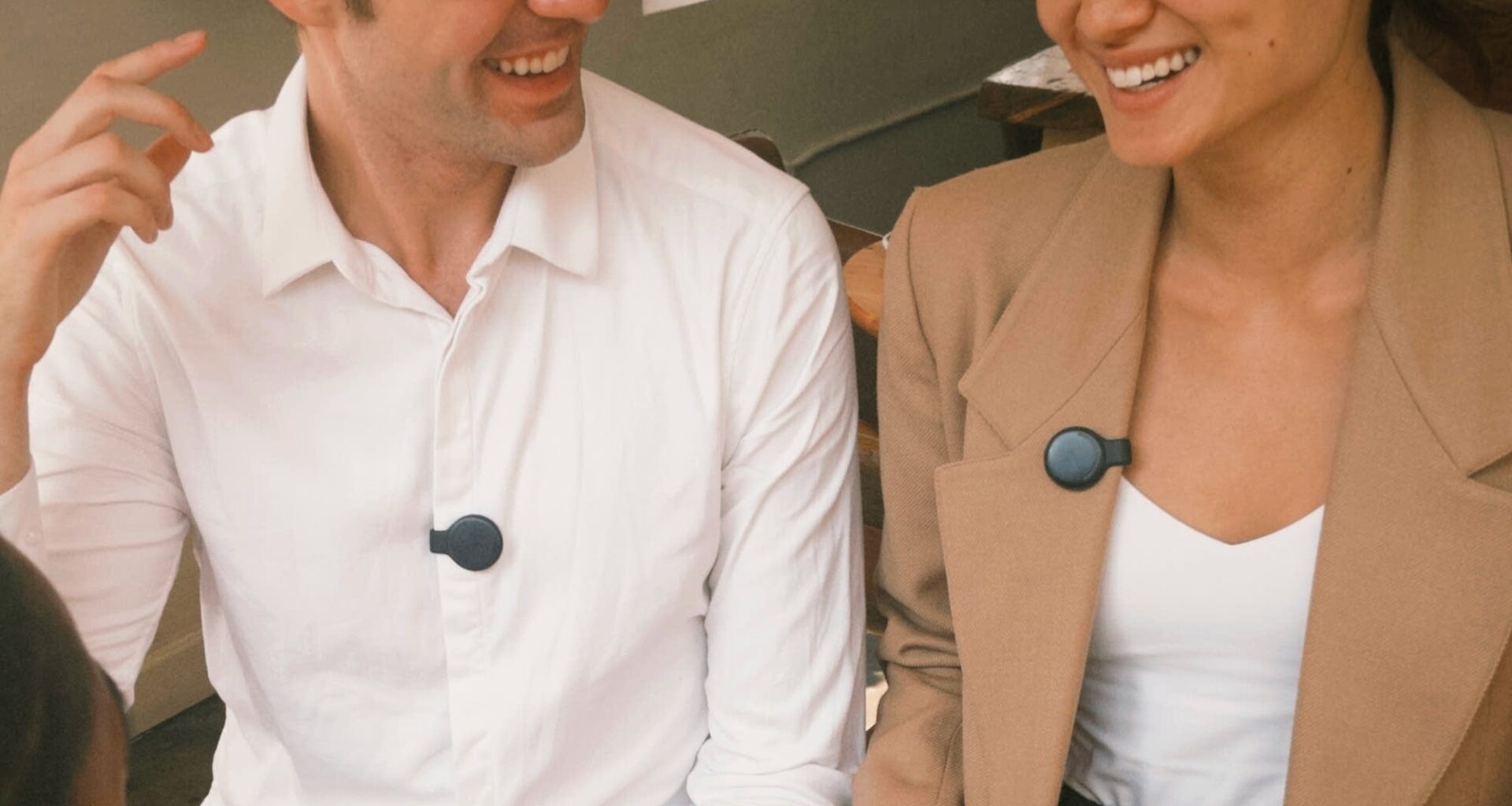Clipped to Karynn Ikeda’s shirt is one vision of our artificial intelligence-enhanced future: the Limitless Pendant. It’s a sleek 1.25-inch-wide black aluminum circle that records all the audio around her pretty much all the time.
The recordings and their transcriptions are stored in an app on her phone, where AI can summarize and analyze and answer questions about her every interaction.
She opens her phone and reads me some of the reminders the AI automatically generated for her, based on yesterday’s conversations with her husband, Philipp Comans.
“Top priorities, journalist visit today. You and Phil talked about tidying up beforehand,” Ikeda says, laughing. “It quotes me, ‘We should just tidy up a little bit before we go to bed.’”
The AI also suggests taking out the trash and cleaning up the “shoe situation” at the front door.
Comans also has a pendant. The couple doesn’t wear the pendants while working, but turn them on as soon as the work day is over.
Both Ikeda and Comans are software engineers in suburban Sacramento and are just generally really into AI. When Ikeda first broached the idea of buying an AI wearable, partly to record and summarize their conversations about tech, Comans was reluctant.
“I said ‘absolutely not,’” said Comans. “This is a horrible idea. Like, why would I invite this in my life? And why would I put the most intimate moments of my life onto a server on the internet where I don’t know what’s going to happen with it?”
But Ikeda eventually convinced him. They were already sharing so much information online anyway. And at the very least, the Limitless transcripts were supposed to be only accessible to them.
While the technology isn’t perfect — it often mistakes Comans and Ikeda for one another, and doesn’t really understand sarcasm — the couple says, for the most part, it’s been helpful to have their conversations recorded.
Even the fights.
“The fact that it records the like, deeply unflattering things that you say right in a moment of weakness, or when you know you’re being really defensive, is kind of the stuff you really, actually need to see,” said Ikeda.
The Limitless Pendant is just one of a new generation of always-on AI wearables that have recently hit the market. There’s the similar Amazon-backed Bee, a bracelet that records and transcribes everything you say. And there’s the yet-to-be-seen device OpenAI and iPhone designer Jonny Ive are reportedly collaborating on.
While an always-listening AI may help Comens and Ikeda maintain their relationship, 19-year-old Maclean Dunkin was hoping the Limitless Pendant could help him start a new one.
“I’ve been on a date before and I’ve worn it,” said Dunkin.
Dunkin works for Limitless as an engineer. He didn’t want to replay the audio or read the transcript from his date for me, understandably. For the record: The date knew beforehand he was planning on recording.
He said he’s asked the AI for feedback on how his dates can go better.
“You can maybe, you know, debrief with your friends or something after. But they don’t have the context of, like, going on the date,” said Dunkin. “Like, how you tell the date is probably going to be way different than how the person you went on the date told the date, right? Like you have that bias, or maybe you’re not even noticing what you’re doing wrong.”
The Limitless Pendant costs around $300. The company says it’s sold tens of thousands, but wouldn’t give Marketplace a more specific number.
There’s no widespread adoption of these always-on AI wearables just yet. But if you work in AI, chances are you’ve probably seen them.
Although it’s more distressing if you know they’re probably there but you can’t see them.
“I just always have my guard up,” said Allie Miller, an AI consultant for Fortune 500 companies. “I find myself looking around a lot more. I find myself looking at people’s wrists or necks or ears. I find myself tracking where the rest of their team members are. It’s not a great position to be in.”
At a recent AI conference, Miller found out another speaker secretly recorded what she thought was a private conversation without her consent. In most states, that’s actually legal.
The covert recorder wasn’t one of the newest generations of AI wearables. But Miller sees the possibility of a near future where everyone needs to assume they’re being recorded at all times.
It’s made her less trusting and more careful about what she says.
“It’s a strange thing that part of being a human is a weak memory,” said Miller. “We did not evolve to have every single thing we’re saying or doing to be remembered.”
From her perspective, even if AI never forgets, maybe humans still should.
Related Topics
